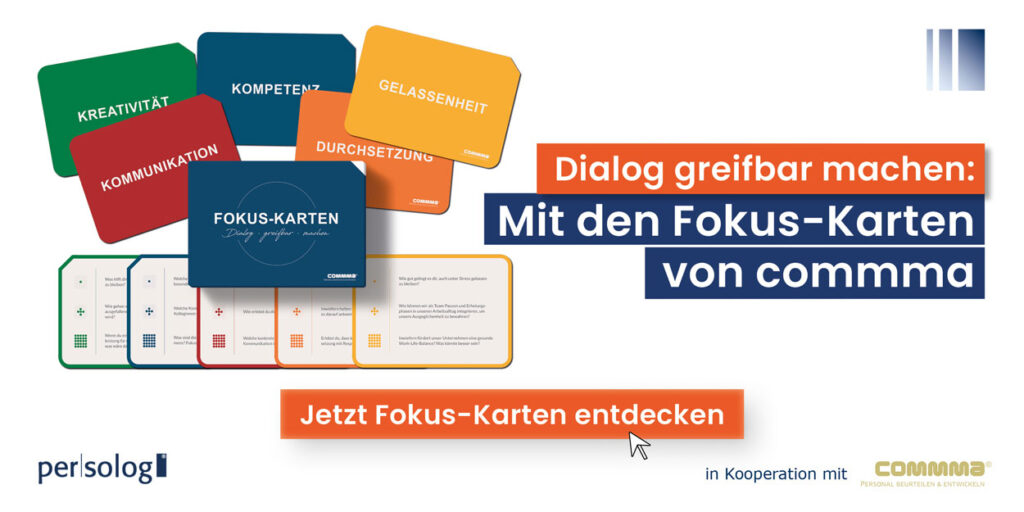As Anne, a manager in a mid-sized company, prepares for the annual performance review with her team member Max, she feels a mixture of excitement and nervousness. Anne knows that an effective performance review is an essential tool for developing and motivating an organization’s employees. Max is a talented employee with great potential, but recent meetings have not been as productive as she would like. She wonders what she can do differently next time and what really matters.
Anne is not alone. Many managers do their best every day. Yet mistakes are often made that reduce the effectiveness of appraisal interviews. This article identifies five of these common mistakes. At the same time, the article offers advice on how to overcome these challenges. When these mistakes are avoided, appraisal interviews can develop their full power and impact.
1. Lack of preparation
Sometimes managers go into appraisal interviews unprepared, thinking only about what feedback they want to give the employee during the interview. However, an effective appraisal interview requires thorough preparation to provide constructive feedback and set specific development goals.
The following questions can help you prepare:
- What is going well? What are you or others satisfied with?
- What is not going well? What are you not satisfied with?
- What does the employee’s development curve look like since the last interview? Is there a positive development, stagnation or even regression?
- What could the employee’s future development look like?
Answering these questions requires an honest and reflective examination of the employee’s performance and behaviour.
Another aspect of preparation that is often neglected is employee involvement. Employees often have no opportunity to prepare for the meeting or to express their own concerns and goals. If the employee is given the opportunity to think about this beforehand, and perhaps even fill out a self-assessment form, the meeting can be organized more effectively and purposefully.
2. Not listening
Another common mistake in employee appraisals is that managers do not give the employee enough space and do not actively listen. However, an appraisal interview should be a dialogue in which both sides have the opportunity to express their thoughts and concerns.
A basic way to give the employee space is to start the conversation openly. Questions such as ‘What is important to you in our conversation today?’ or ‘Do you have a topic we can talk about today?’ show the employee that their opinions and concerns are valued and that the conversation is not a one-sided affair.
During the conversation, it is important to communicate at eye level. When you treat the employee as an equal, you create an atmosphere of respect and openness.
Questions such as ‘How did you feel about our collaboration last year?’ allow employees to describe their perspective and express their thoughts. This not only strengthens the employee’s sense of involvement and appreciation, but also provides valuable insights that can be used to further develop the collaboration.
Overall, it is important that appraisal interviews are seen as a dialogical process in which both sides have the opportunity to express themselves and be heard.
3. Unspecific and unconstructive feedback
A common mistake in employee appraisals is giving unspecific and unconstructive feedback. The problem is that the employee does not know exactly what the problem is and what they should do differently in the future.
It is important that praise and criticism are not superficial, but are backed up with concrete examples. By showing the employee exactly what went well and what can be improved, the feedback becomes understandable and helpful.
As a manager, you should also be specific about what you would like to see different or how the employee could improve. Rather than being vague, it is important to formulate clear expectations and set specific goals for the future. It is important to note that the employee must be able to achieve the goal. Utopian goals or complete changes in behavior can demotivate the employee. It can be helpful to define smaller intermediate steps and to continually track achievement in follow-up meetings.
The employee should not be left alone with the implementation. By asking: ‘How can I support you?’ you show the employee that you are willing to help them achieve their goals and overcome their challenges.
4. Ignore typical thinking errors
Another stumbling block in employee appraisals is the failure to recognize typical thinking errors. These thinking errors can lead managers to make inaccurate or biased judgments about their employees. Three thinking errors are presented below:
- Halo effect: When an employee’s outstanding trait or performance leads to a more favorable overall evaluation of the person. Other aspects of the employee’s performance or behavior are overlooked or viewed less critically. For example, if a salesperson makes good sales, this can lead to other aspects, such as their interactions with colleagues, being rated favorably, even though their performance in this area may be below average.
- Similarity bias: The supervisor evaluates the employee more favorably than would be objectively justified because of personal similarities or sympathies.
- Recency bias: This occurs when recent events or performance are overvalued while events or performance from longer ago are neglected. For example, performance is judged based on the last 1-2 weeks instead of the last year.
These errors in judgment happen to everyone and cannot be completely avoided. It is therefore important for managers to be aware of their own biases and to make an active effort to assess their employees objectively and fairly. This requires constant self-reflection and a willingness to challenge one’s own thinking.
5. Lack of documentation of next steps and agreements
A common mistake in employee appraisals is that the next steps and agreements are not sufficiently defined and documented. This can lead to important decisions and measures remaining unclear in retrospect and not being implemented.
Although the meeting often discusses changes or improvements, it does not specify what will be done differently from now on. As a result, the agreements made remain unclear and vague, and the likelihood that they will be implemented is low. Even if specific actions are agreed upon during the meeting, there is a risk that they will be forgotten or falsified if they are not written down. Failure to implement defined actions can lead to frustration and dissatisfaction on both sides.
To avoid this mistake, it is important that all agreements and next steps are recorded in writing. This can take the form of a protocol or a written agreement and should be binding for both parties. It may be helpful to arrange a follow-up meeting immediately to review the extent to which the agreed actions have been implemented (by both the manager and the employee). This will ensure that they are not forgotten and that they are actually implemented.
Get specific: Your next steps
Perhaps this article has inspired you to evaluate and optimize your appraisal interviews. Then get specific: Write down on a piece of paper three specific ideas or areas for improvement that you would like to address and implement.
Another way to take your appraisal interviews to the next level is to use the focus cards from commma Personalentenwicklung GmbH. The focus card set consists of 30 different cards on relevant topics relating to collaboration. This makes it even easier to prepare for appraisal interviews. The focus cards make it easier to gain clarity about what is really relevant and help to get to the heart of these topics. With the psychologically based topics and questions, the cards help to engage in an honest dialogue at eye level.




